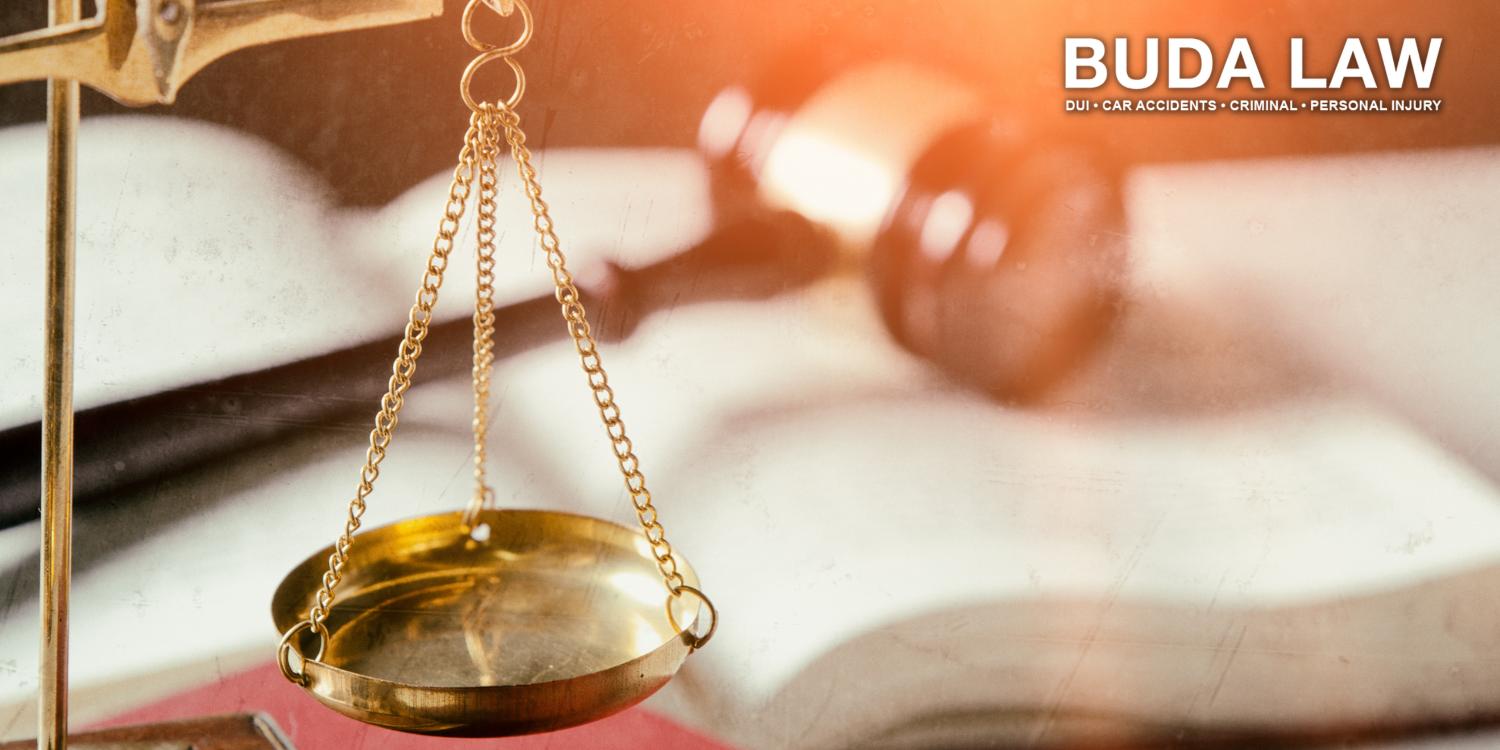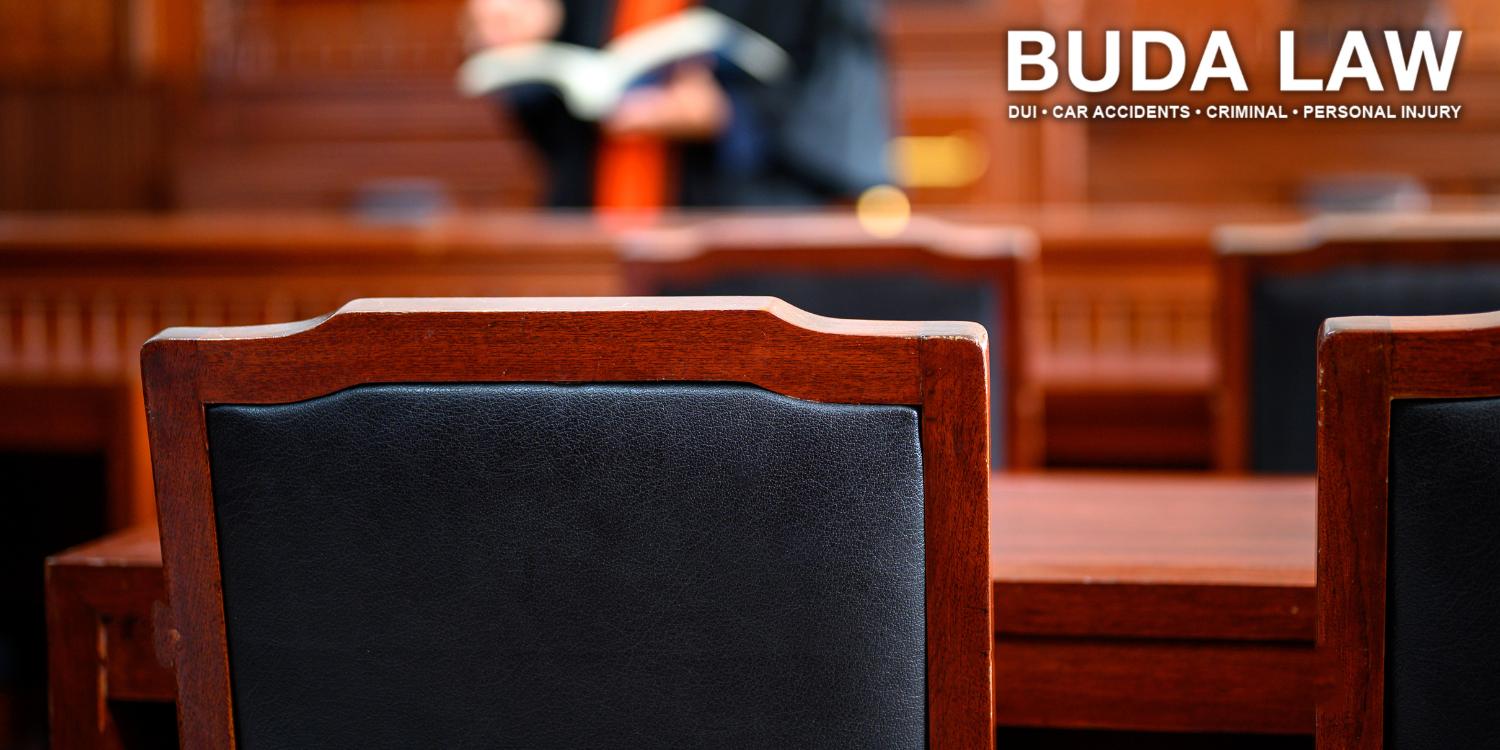The belief that law enforcement officers are powerless to press charges when a victim refuses is a common misunderstanding that often leads to confusion about the authority of law enforcement and the legal system. In reality, the decision to press charges in a criminal case typically rests not with the alleged victim but with the prosecutor’s office.
At Buda Law, our expertise in criminal defense law provides us with a unique perspective on this issue. Our criminal defense attorneys understand how the criminal justice system works and that the legal process is far more complex than it appears.
While an alleged victim’s willingness to support prosecution can be influential, it is not the sole determining factor in whether a case moves forward. In some instances, charges may be pursued even without the victim’s cooperation, especially in cases with substantial evidence independent of the alleged victim’s testimony.
We recognize that each case is unique and requires a tailored approach, considering the specific legal, evidential, and emotional dynamics. That’s why we empower our clients to understand their rights and the criminal justice system by simplifying this common misconception.
If you’re facing criminal charges in Tampa, contact a Tampa criminal defense attorney at Buda Law today at (813) 322-2832 to schedule a consultation.

What Happens if Someone Presses Charges On You?
If someone presses charges against you, it initiates a series of legal proceedings that can significantly impact your life. The process typically begins when an alleged victim files a complaint with law enforcement, leading to an investigation. If the authorities find sufficient evidence, they may arrest you and bring formal charges. This marks the start of a criminal case, where you will be required to appear in court.
It’s important to understand that being charged is not the same as being found guilty; you have the right to defend yourself against the accusations. Securing legal representation is essential, as an experienced attorney plays a critical role in navigating the legal system, helping you understand your rights, and devising an effective defense strategy. Their guidance is invaluable in ensuring you are well informed and adequately represented throughout the legal process.
During the proceedings, the prosecution must prove your guilt beyond a reasonable doubt while you and your legal team can present evidence and arguments in your defense. The outcome of the case could range from dismissal of charges to a trial and potential sentencing, depending on the nature of the allegations and the strength of the evidence presented.

Can Police Press Charges Without Victim’s Consent?
In many legal jurisdictions, police officers can indeed press charges without a victim’s consent. This situation often arises in cases where public safety is a concern, such as domestic abuse, sexual assault, sexual battery, or other serious crimes. The prosecutor’s office typically decides to proceed with charges based on physical evidence rather than solely on the victim’s willingness to participate.
This approach ensures that justice can be pursued even in situations where victims may be unwilling or unable to advocate for themselves, possibly due to fear, coercion, or other factors. It’s important to understand that the legal system aims to serve the broader interests of justice and public safety, sometimes requiring action against the alleged victim’s wishes.
However, the absence of a cooperative victim can pose challenges in proving a case beyond a reasonable doubt, and prosecutors must weigh these factors when deciding whether to move forward with charges.
Understanding the Role of the Victim in Criminal Cases
Typically, a victim initiates the legal process by filing a criminal complaint to law enforcement. This report is the first step in a sequence of actions that may lead to an investigation and, potentially, prosecution. However, it’s important to distinguish between private and public interests in criminal law.
While the victim’s report is essential, the decision to pursue charges often hinges on public interest, represented by the state or government, rather than the victim’s desires. This distinction reinforces the principle that crimes are viewed as offenses against the state or society, not just against the alleged victim.
As such, the prosecutor, acting on behalf of the public, evaluates the case’s merit based on legal criteria and the available evidence and may decide to proceed with charges even if the victim is unwilling to participate.
This approach ensures that justice serves not only the interests of the victim but also the broader societal need for law and order, emphasizing the dual responsibility of the legal system to both individual citizens and the community at large.
The Authority of Law Enforcement and Prosecutors
The authority of law enforcement and prosecutors in the criminal justice system operates with a degree of independence from the victim’s wishes, emphasizing the objective pursuit of justice. Police investigations are conducted based on the evidence and the severity of the alleged crime rather than solely on the victim’s desire to press charges. Law enforcement officers gather facts, interview witnesses, and collect enough evidence to establish whether a crime has been committed.
Once this initial investigation is completed, the case is often handed over to the prosecutors, who play a pivotal role in deciding whether or not to pursue charges. Their decision is not based on the victim’s personal preferences but on legal criteria. These criteria include the strength and admissibility of the evidence, the severity of the offense, the likelihood of obtaining a conviction, and the broader interests of justice and public safety.

When Charges May Be Pressed Without Victim Consent
Pressing criminal charges when the victim doesn’t want to is a delicate balance between respecting their autonomy and upholding public safety. We’ll explore the different circumstances when authorities may pursue prosecution even when the alleged victims don’t want to press charges.
This scenario is especially common in domestic violence cases and other situations where the alleged victim doesn’t want to press charges out of fear or just changes their mind. The criminal justice system allows for this action when the evidence suggests the alleged perpetrator is a significant threat to public safety or when the crime’s severity demands state intervention.
Domestic Violence Victim
The possibility of domestic violence charges being pressed without the victim’s consent presents unique challenges and demands a strategic approach. Defense attorneys must be prepared to contend with cases where the prosecution moves forward based on the strength of evidence, regardless of the victim’s desire to prosecute.
In these situations, the defense must scrutinize the evidence, understanding that it must stand on its own without the victim’s testimony. The defense strategy might highlight inconsistencies in the prosecution’s domestic violence case, the lack of direct testimony from the victim, and the potential for misunderstandings or misinterpretations.
Your Tampa domestic violence attorney will walk the fine line between the public’s interest in addressing domestic violence and the defendant’s right to a fair trial, ensuring that the charges are not solely based on presumptions but on substantiated, legally sound evidence.
Cases Involving Minors or Vulnerable Adults
In cases involving minors or vulnerable adults, the legal system exercises heightened vigilance and a protective approach. These cases often see the state taking a more proactive role due to the increased risk of harm and the possibility of coercion on the victims.
In defending such cases, it’s crucial to handle the matter with utmost sensitivity and care while challenging the evidence and ensuring that the rights of the accused are fully protected. The defense strategy must be carefully crafted, considering the delicate nature of the case and the potential vulnerabilities of the parties involved.

Significant Public Interest or Safety Concern
In situations with significant public interest or safety concerns, the decision to prosecute moves forward regardless of whether the victim doesn’t want to press charges. These cases demand a heightened level of diligence and strategic planning, as the prosecution is often driven by a strong mandate to uphold public safety. This could include widespread community impact, high-profile incidents, or potential ongoing danger to the public.
In defending such charges, the attorney must examine the prosecution’s evidence and motives, ensuring that the public’s demand for justice does not overshadow the defendant’s rights.
What This Means for the Accused
When criminal charges are pressed, even without the victim’s support, understanding the importance of legal representation is critical. Despite the victim’s lack of support, if the prosecution believes there is sufficient probable cause to suspect a crime has been committed, they may proceed with the case.
Your Tampa violent crimes attorney from Buda Law will provide vital insight into the inner workings of the Florida justice system, ensuring your rights are protected and the prosecution is held to its burden of proof.
As a former prosecutor, attorney Andrew Buda understands this more than most and will be an indispensable asset. Not only will he dissect their probable cause, but he will challenge any weaknesses in their case while providing a robust defense.

For Aggressive Criminal Defense in Tampa, FL, Call Andrew Buda at Buda Law Today
If you find yourself facing domestic violence charges or any other violent crime charges, it’s imperative to contact an attorney immediately. Attorney Andrew Buda offers the guidance and aggressive defense you need during such challenging times. His commitment to building a strong attorney-client relationship means you’ll receive personalized, dedicated legal support tailored to your criminal charges. Secure the legal representation you deserve by calling Buda Law at (813) 322-2832 today for a free consultation.
